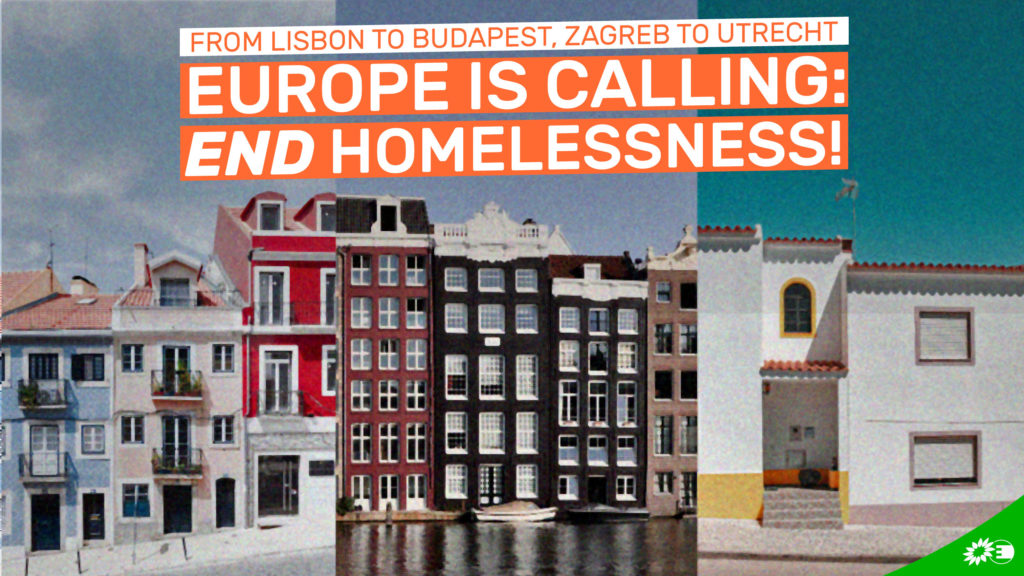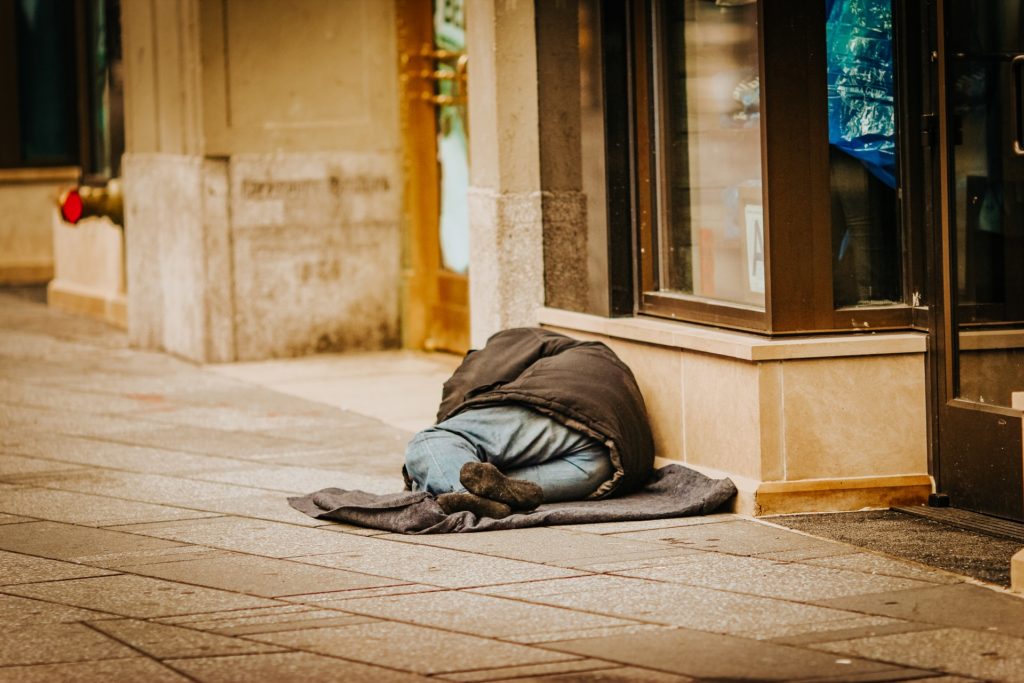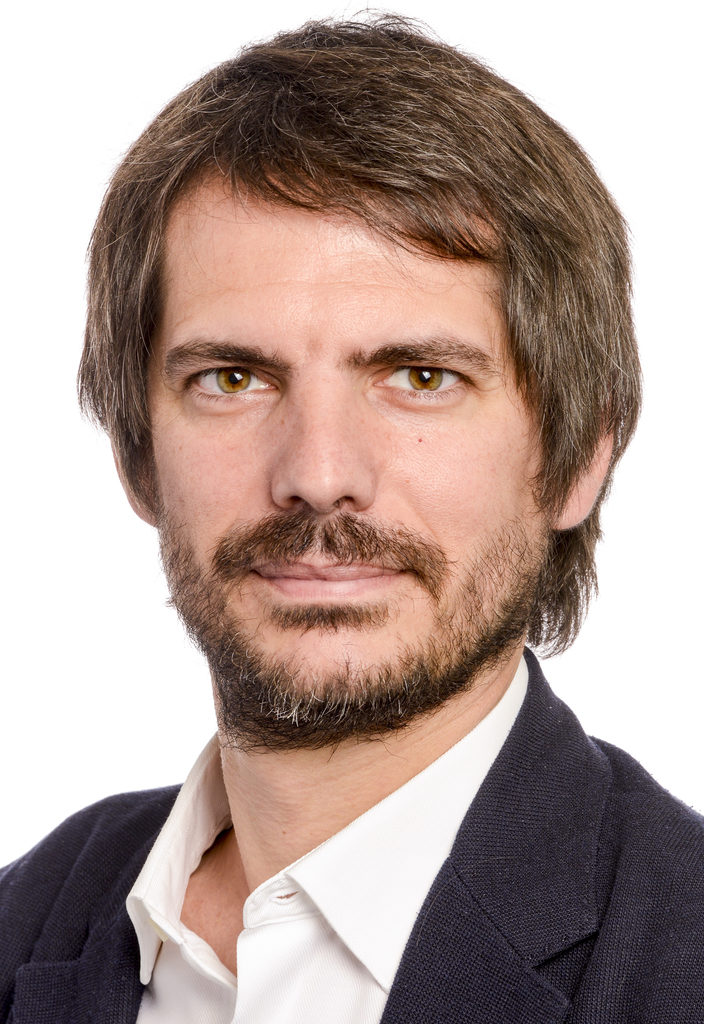26.04.2021
An Opinion by Kim Van Sparrentak, Katrin Langensiepen, Ernest Urtasun and Sara Matthieu, Greens/EFA MEPs.
Homelessness is rising in the EU but it is not insurmountable, if European leaders, national governments, local authorities and all stakeholders work together. This is why, with the support of Europe’s biggest cities, over 120 MEPs, Europe’s regions and the main social NGOs, we are calling for the setting of an EU goal to end homelessness at the Porto social summit.

It is becoming an often-quoted statistic, that close to 700,000 people in the EU are sleeping rough or in homeless shelters each night, and that the number of homeless people has more than doubled in the last decade. This is a trend we see all over Europe. While attention is frequently drawn to these figures, that should not be an excuse for becoming numb to them.
There is an unfolding social emergency in Europe and without an adequate political response, it will only exacerbate the existing pressures on housing. In the wake of the pandemic, reducing poverty and social inequality has become the number one issue the EU should focus on for EU citizens according to a recent Eurobarometer. So it makes sense to focus on homelessness: an extreme form of poverty
The temporary moratorium on mortgage loan repayments that many Member States implemented in the COVID context are likely to be phased out soon. This will have a severe impact on distressed households and can lead to an unprecedented peak of homelessness in Europe.

The Porto Social Summit on 7-8 May is the occasion to not only endorse the European Pillar of Social Rights Action Plan, but to raise the bar when it comes to strengthening the social dimension of the Union, via a commitment from leaders to address rising homelessness rates in Europe.
Together with over 120 Members of the European Parliament, we have sent an open letter to the President of the European Council, the Portuguese Prime Minister, Social Affairs Ministers and the Heads of State of Government, ahead of the Social Summit and informal leaders summit on 8 May.
This letter, sent together with the Mayors and Vice-Mayors of many of Europe’s largest cities, from Lisbon to Amsterdam to Zagreb[1], with Members of the Committee of the Regions, and with leading European social NGOs, contains a clear call for the setting of an EU goal to end homelessness by 2030. It signals the willingness for the kind of multi-level collaboration required to reduce, prevent, and end homelessness for good.
In its Communication on the Action Plan on the European Pillar of Social Rights on 3 March, the European Commission acknowledged the sharp increase in homelessness. The European Commission also referred to the fact that the European Parliament and stakeholders want the EU to set an objective to end homelessness by 2030, but the Commission fell short of actually adopting one. In fact, this call for an EU goal has twice been adopted by a majority of the European Parliament chamber in the past six months.

Ending homelessness is a complex task. It requires local authorities and national governments to take the lead, together with the involvement of many stakeholders. But the EU can play its part by setting a common political goal for everyone to work towards. Setting an ambitious goal provides clarity and ensures that resources can be released to achieve it.
Among the tools at its disposal, the European Union can, for instance, amend the European Semester framework so that homelessness rates are monitored under the European Pillar of Social Rights Action Plan target to lift 15 million Europeans out of poverty by 2030. The current lack of consistent, Europe-wide data on homelessness is a key challenge that should be overcome.
A common European goal can also be the basis for the High-Level conference on Homelessness that the Portuguese Presidency is organising in Lisbon on 21 June. In Lisbon, the EU Commission will unveil the Platform on Combatting Homelessness. If underpinned with concrete financial and administrative resources, the platform can make a real difference, beyond a symbolic gesture.
We can end homelessness, with adequate tools and resources. Finland is the only Member State to have already set a goal to end homelessness completely, and by 2027. Finland has succeeded in reducing the number of homeless people every year since 2012, by fully rolling out a ‘Housing First’ approach.
While the causes of homelessness are complex and varied, it is not inevitable or insurmountable. Homelessness is sometimes seen as a fact of life. But turning a blind eye to homelessness is also a political choice. A choice that became apparent at the start of the COVID crisis, when accommodation for homeless people was provided in record time. However, these efforts were often short-lived, and there is a need for a more coherent approach.
As we head into the European recovery, we must
ensure that the pandemic does not lead to an increase in homelessness as
occurred in the aftermath of the financial crisis of 2009, but instead we seize
this moment to reverse the trajectory. This requires bold political choices and
investment. Porto is the time to deliver.
[1] Amsterdam, Athens, Barcelona, Bordeaux, Braga, Bremen, Bratislava, Brussels Capital, Budapest, Cluj-Napoca, Dublin, Gent, Helsinki, Kosice, Kuopio, Liege, Leuven, Lyon, Lisbon, Odense, Prague, Ljubljana, Rotterdam, Sevilla, Strasbourg, Tallinn, Taranto, Utrecht, Valencia, Zagreb

Kim VAN SPARRENTAK 
Katrin LANGENSIEPEN 
Ernest URTASUN 
Sara MATTHIEU
More information:
Francesca Jenner – Social Justice Campaigner
francesca.jenner@ep.europa.eu